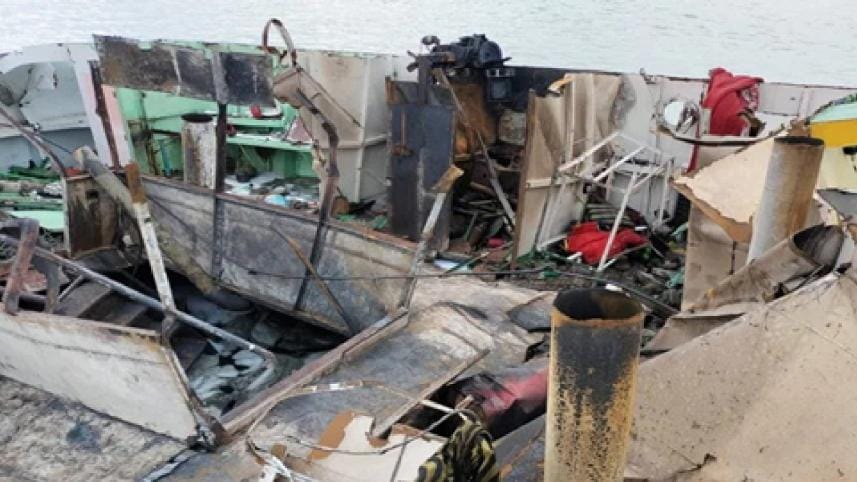Legal implications of the Oil Tanker explosion in Jhalokati

An incident of explosion occurred in the vessel named Sagar Nandini-2 on the Sugandha river in front of Jhalokati municipality on 1 July 2023 while it was carrying 11 lakh litres of petrol and diesel to the Padma Oil Depot. There were nine crew members on board and five of them were rescued with burnt wounds while the rest has presumably died. Approximately 20,000 litres of oil-mixed water were recovered from the area of the river, which will have a long-term impact on the environment and biodiversity.
Six people died after a similar blast in Sagar Nandini-3, another tanker owned by the same company, at the same place in November 2021. Claims of loss of life or personal injury, as well as loss of or damage to property, are the claims to be applied against the ship's charterer, manager, or operator.
On 2 July 2023, the local Upazila Nirbahi Officer (UNO) formed a committee to investigate the matter. Under the Inland Shipping Ordinance 1976, upon the receipt of a report of shipping casualty, the UNO shall forthwith hold an inquiry and, within seven days, submit to the relevant authorities a report stating the facts and circumstances of the casualty together with his observations, if any. This is mandatory for the UNO and should have been complied with already.
In the investigation of similar incidents, some of the issues that need to be considered are as follows. There is a need of an investigation on whether the ship was worthy of making a voyage. This obligation is applied against the owner of the ship, the master of the ship, and every agent charged with the loading of the ship. The concerned authorities are required to check whether the ship was holding a yearly renewable pollution prevention certificate.
Whether the ship was insured is also a very important factor. If the ship was insured and if the terms of insurance were properly followed, then the ship-owner may claim for insurance and can pay for the losses and damages.
Furthermore, under the 1976 Ordinance, whether the ship has been equipped with life-saving apparatus, fire-fighting equipment and instruments, and whether prior measures have been taken to protect against explosion, fire, collision and other accidents, must be investigated into. Whether the risk assessment analysis, such as Fault Tree Analysis (FTA), and Event
Tree Analysis (ETA) have been undertaken is another important question. The FTA is concerned with analysing faults which might lead to an event, whereas the ETA is interested in stopping it from escalating. Also, the ship will mandatorily bear a certificate of survey and a certificate of registry. As an interim measure, the Certificate of Competency of the engineers or masters granted under this Ordinance may be suspended or cancelled if it is found that the incident has been caused by or due to any wrongful act or default of such person. Often, the lack of professionalism of the on-board crew and lack of implementation of overall quality and compliance by the owner/operator of the vessel are often responsible for such recurrences. As such, there is increased need for proper implementation of the laws to avoid similar incidents in the future.
The writer is an Advocate of the Supreme Court of Bangladesh.



 For all latest news, follow The Daily Star's Google News channel.
For all latest news, follow The Daily Star's Google News channel.
Comments